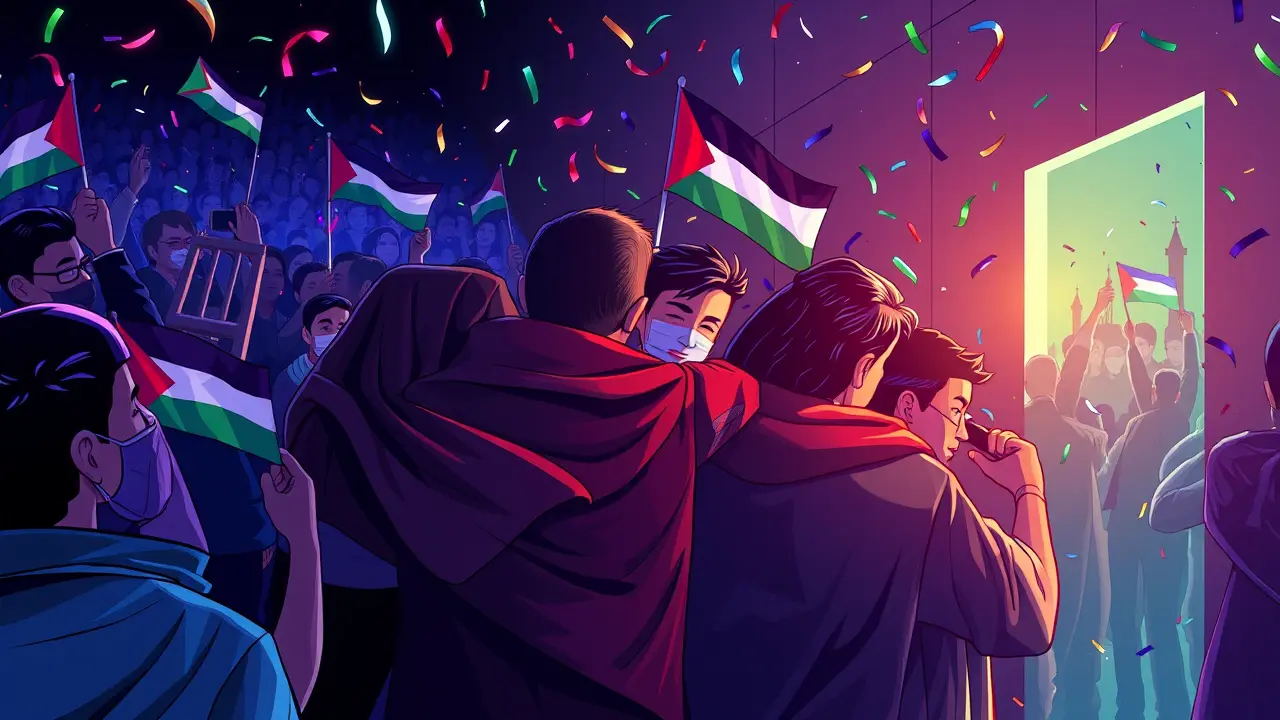Palestinian Prisoners Freed in West Bank Under Ceasefire Deal
In a move that simultaneously underscores the fragility of a new truce and the profound human stakes at play, Israel has begun the process of releasing 250 Palestinian prisoners from detention facilities across the West Bank, a key component of the ceasefire agreement painstakingly negotiated with Hamas. This isn't merely a transactional exchange of bodies for quiet; it is a raw, emotional earthquake for thousands of families who have spent years, and in some cases decades, clutching faded photographs and fragmented memories of their incarcerated loved ones.The scenes unfolding outside Ofer prison and elsewhere are a study in the duality of such moments: uncontainable joy, with crowds waving Palestinian flags and embracing their returning sons and brothers, set against a backdrop of deep-seated political tension and the grim awareness that this is a temporary salve, not a cure, for a conflict now in its eighth decade. For every mother who finally gets to hold her child, there is an Israeli official warning that some of those released have 'blood on their hands,' a charge that immediately reframes this act of diplomacy as a potential security gamble.The very logistics of the release are fraught, coordinated through the Red Cross and Palestinian authorities, a clinical process belying the torrent of emotion it unleashes. This deal, emerging from the ashes of a devastating conflict in Gaza that saw thousands of casualties, follows a familiar, painful script in the region—a cycle of violence, international pressure, and then a fragile, brokered calm where prisoner releases often serve as the most tangible currency.Yet, the context is always shifting. The current Israeli government, one of the most right-wing in the nation's history, faces fierce internal criticism from hardliners who view any concession as a dangerous capitulation to terrorism, while for the Palestinian Authority, securing the freedom of its people is a vital, if fleeting, political victory that momentarily pierces the pervasive sense of powerlessness.The individuals stepping back into the sunlight are not a monolith; their cases range from youths detained for throwing stones to individuals convicted of more serious offenses, and their reintegration into societies scarred by occupation and economic despair will be its own complex challenge. Analysts are already watching closely, knowing that the sustainability of this ceasefire hinges on a thousand such details—the delivery of humanitarian aid into Gaza, the cessation of rocket fire, and the perceived goodwill generated by moments like this.The released prisoners become instant symbols, hailed as heroes by some and viewed as threats by others, their personal stories instantly absorbed into the larger, grinding narrative of the Israeli-Palestinian conflict. For now, the overwhelming sentiment is one of relief, a desperate, collective exhale for families made whole again. But as the confetti settles and the news cameras move on, the underlying grievances—the borders, the settlements, the status of Jerusalem—remain entirely unaddressed, leaving this hard-won prisoner release feeling less like a step toward peace and more like a brief, bittersweet intermission in a tragedy that has yet to write its final act.
It’s quiet here...Start the conversation by leaving the first comment.
